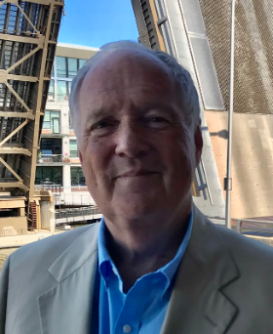“Vladimir Bukovsky, Václav Havel, Adam Michnik, and Czeslaw Milosz come to mind, among others,” according to the longtime Bradley Foundation vice president, “as do the Polish Solidarność trade union, the Czech Charter 77 group, and the Russian truth-telling group Memorial.”
Overall, giving by conservatives in America to support organizations and projects concerned with foreign policy and national security, as well as to groups and efforts at work “on the ground” in other countries that promote democracy or provide humanitarian aid, seems to have changed in many ways during the past decade, if not longer—concerningly to some, warrantedly to others. Hence this small online symposium.
To begin fostering some discussion and consideration of the important subject, we have simply presented three broad questions to a panel of five respondents:
- Do you think conservative international giving has changed during the past decade and, if so, how and why?
- Have these changes been good or bad, for America and the world, and how and why?
- How do you think conservative international giving should change, if at all, during the next decade?
The respondents, each with deep knowledge and wide experience in the area, are Wilson Center president Mark Green, former Joyce Foundation and German Marshall Fund president Craig Kennedy, Quincy Institute for Responsible Statecraft chief executive officer Lora Lumpe, former Bradley Foundation vice president for program and Giving Review co-editor Daniel P. Schmidt, and Hudson Institute former president and distinguished fellow Kenneth R. Weinstein.
Schmidt’s responses are below. Here are links to the others’ responses: Green, Kennedy, Lumpe, and Weinstein.
During his more than three decades at Bradley, Schmidt served as a program officer, senior program officer, vice president for operations, executive vice president and chief operating officer, and acting president. Before joining Bradley, he was an assistant to the vice president for academic affairs at Marquette University, where he taught Russian History and Western Civilization. He is a member of the board of directors of the Ukrainian Catholic Education Foundation.

Schmidt
- Do you think conservative international giving has changed during the past decade and, if so, how and why?
Conservative international giving has changed appreciably during the past decade, in my opinion, yes—of not beginning longer ago than that. Consistent with the rise of populism, on both the right and the left, there seems to have been more than a little bit of “come home, America” to grantmaking by conservatives here. It’s also been consistent with a sort of Midwestern Taft Republicanism—one, or what may now be two, Cold Wars ago. Perhaps everything old is new again, as they say.
Diminished, if not gone, are many of the kind of scholarly exchange programs in the humanities and political science, speakers’ programs featuring professionals in business, finance, and the law. Definitely diminished, apparently given the perceived lack of need for them, are projects in support of writers and thinkers who believe in the inherent dignity of human beings, everywhere, and implicitly or explicitly introduce and popularize democratic values in their work. Vladimir Bukovsky, Václav Havel, Adam Michnik, and Czeslaw Milosz come to mind, among others, as do the Polish Solidarność trade union, the Czech Charter 77 group, and the Russian truth-telling group Memorial. (All locally arisen, by the way.)
- Have these changes been good or bad, for America and the world, and how and why?
While the larger populism with which they may be consonant has been quite system-shakingly beneficial, these decreases in conservative philanthropic interest have come with some costs. There is very much less philanthro-“muscle memory” on which to rely now for either guidance or action in international grantmaking, and that takes a while—decades, if not longer—to build, and rebuild. There really needn’t have been such atrophy, and the short-sightedness in giving that helped cause it has been bad, for America and the world.
- How do you think conservative international giving should change, if at all, during the next decade?
The eruption of war in Ukraine, coupled with the continuing rise of China and repression in Iran, among other things, are raising great, and grave, doubts about democracy’s promise. Plus ça change, plus c’est la même chose. We do need to rebuild muscle, which requires resources—a reinvigorated, conservative, international, funding flow, intelligently and humbly channeled with patience.
Perhaps everything old is new again. Plus ça change, Bukovsky, Havel, Michnik, and Milosz come to mind, as do Solidarność, Charter 77, and Memorial.




